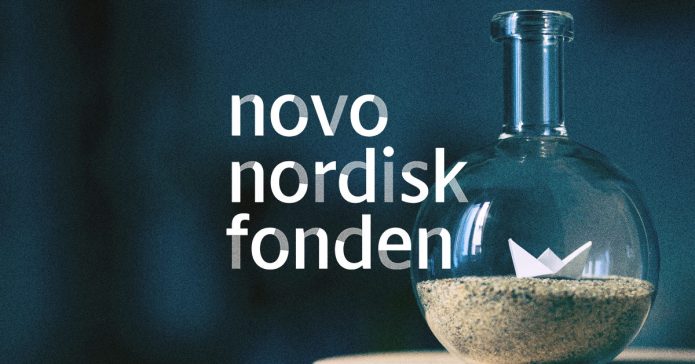Microorganisms profoundly influence human health and well-being and have developed sophisticated defence mechanisms vital for their survival. A research group led by Ditlev Egeskov Brodersen, Associate Professor, Aarhus University will seek to uncover the fundamental principles governing microbial self-defence and survival in a new project. The ultimate aim of the project is to provide a foundation for developing future antimicrobial drugs and treatment regimens.
Ditlev Egeskov Brodersen is one of four research leaders who are receiving DKK 10 million each from the Foundation through its new Hallas-Møller Ascending Investigator grants.
The three other recipients are: Xu Peng, Associate Professor, University of Copenhagen; Jacob Fog Bentzon, Associate Professor, Aarhus University; and David E. Gloriam, Associate Professor, University of Copenhagen.
The purpose of the Hallas-Møller Ascending Investigator grants is to support and strengthen the careers of excellent young to middle-aged associate professors in their efforts to reach their full potential as researchers. The grants are awarded within bioscience and basic biomedicine, which mainly focus on health and disease and understanding the human organism.
The grants are one part of the Novo Nordisk Foundation’s new Research Leader Programme, which aims to ensure that the best research leaders at all stages of their careers have the opportunity to pursue ambitious and meaningful projects.
ABOUT THE RECIPIENTS AND THEIR PROJECTS:
Xu Peng
Associate Professor, Department of Biology, University of Copenhagen
Project title: Functional and Evolutionary Understanding of the Interaction between Microbial CRISPR-Cas Immunity and Viral Anti-CRISPR Proteins
Xu Peng says: “The objective of the project is to study how microorganisms use the CRISPR-Cas immune system for protection against virus infection and how viruses use their anti-CRISPR proteins (Acrs) to inhibit the CRISPR-Cas immune system. The outcome will be deeper understanding of the CRISPR-Acr interaction that will facilitate the future development of better CRISPR- and Acr-based tools for treating human genetic and infectious diseases.”

Ditlev Egeskov Brodersen
Associate Professor, Department of Molecular Biology and Genetics, Aarhus University
Project title: Understanding Microbial Defence Mechanisms
Ditlev Egeskov Brodersen says: “Microorganisms profoundly influence human health and well-being and have developed sophisticated defence mechanisms vital for their survival, including highly specialized enzymes that allow them to overcome periods of starvation and exposure to heat or antibiotics. This project seeks to uncover the fundamental principles governing microbial self-defence and survival by studying both the function and molecular architecture of key cellular components. The ultimate aim of the project is to provide a foundation for developing future antimicrobial drugs and treatment regimens.”

Jacob Fog Bentzon
Associate Professor, Aarhus University, and Group Leader, Centro Nacional de Investigaciones Cardiovasculares, Madrid, Spain
Project title: Functional Consequences of Smooth Muscle Cell Plasticity and Clonal Expansion in Atherosclerosis
Jacob Fog Bentzon says: “The development of atherosclerosis in arteries supplying the heart and brain is an important obstacle to living long and healthy lives. Most researchers today consider atherosclerosis an inflammatory disease driven by macrophages, but recent studies by others and us have shown that local smooth muscle cells participate much more abundantly in atherosclerotic plaques than previously thought. The majority of these cells have escaped detection because they lose normal smooth muscle characteristics and take on the appearance of other cell types. In the present study, we will explore the functional consequences of this mysterious cell population for atherosclerosis development. The goal is to find novel targets for therapy.”

David E. Gloriam
Associate Professor, Department of Drug Design and Pharmacology, Faculty of Health and Medical Sciences, University of Copenhagen
Project title: GPCR Biased Signalling: Illuminating the Pathways to Function and Disease
David E. Gloriam says: “The project aims to find out how just one cell-surface receptor can elicit vastly different biological, therapeutic or adverse effects when activated by natural, medicinal or abused substances. My group will develop a new database resource to consolidate this new research field and conduct molecular modelling to select receptor targets and identify molecular mechanisms and substances. My Department colleagues will integrate pharmacology, crystallography and chemistry, and unique methods will be brought in through leading international collaborations. This will help us to understand receptor responses and provide starting-points for developing safer therapeutics.”
ABOUT THE NOVO NORDISK FOUNDATION’S RESEARCH LEADER PROGRAMME:
The purpose of the Programme is to ensure that the best research leaders at all stages of their careers have the opportunity to pursue ambitious and meaningful projects. The Programme comprises three types of grants:
- Hallas-Møller Emerging Investigator – targeting young promising research leaders for establishing their own research group and profile;
- Hallas-Møller Ascending Investigator – targeting young to middle-aged principal investigators for consolidating their research groups; and
- Distinguished Investigator – targeting professors of the highest international calibre.
The Foundation allocated DKK 600 million in 2017 to establish the new Programme and will award up to DKK 120 million each year in up to 12 five-year grants of up to DKK 10 million.
FURTHER INFORMATION
Christian Mostrup Scheel, Senior Press Officer, Novo Nordisk Foundation,
phone: +45 3067 4805, cims@novo.dk


